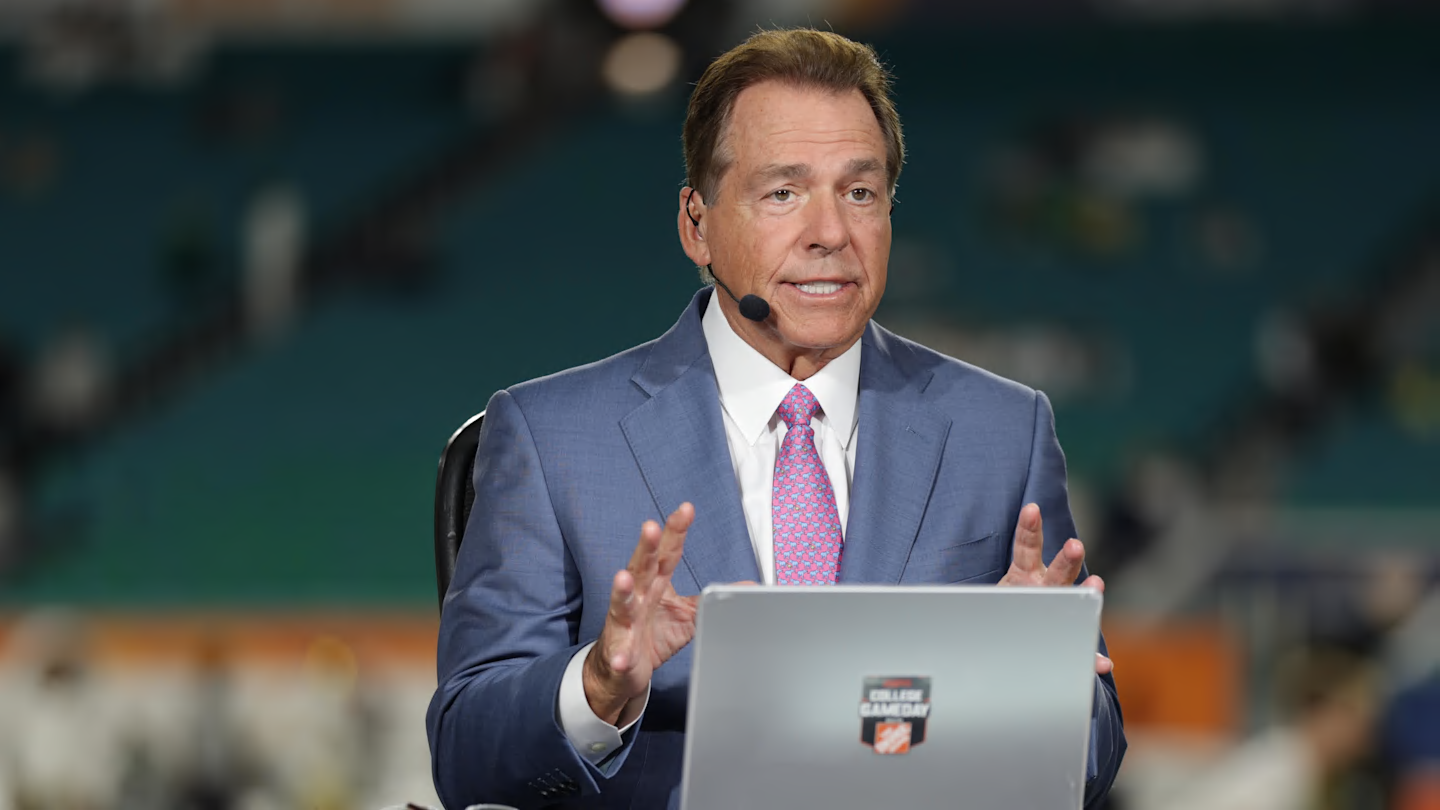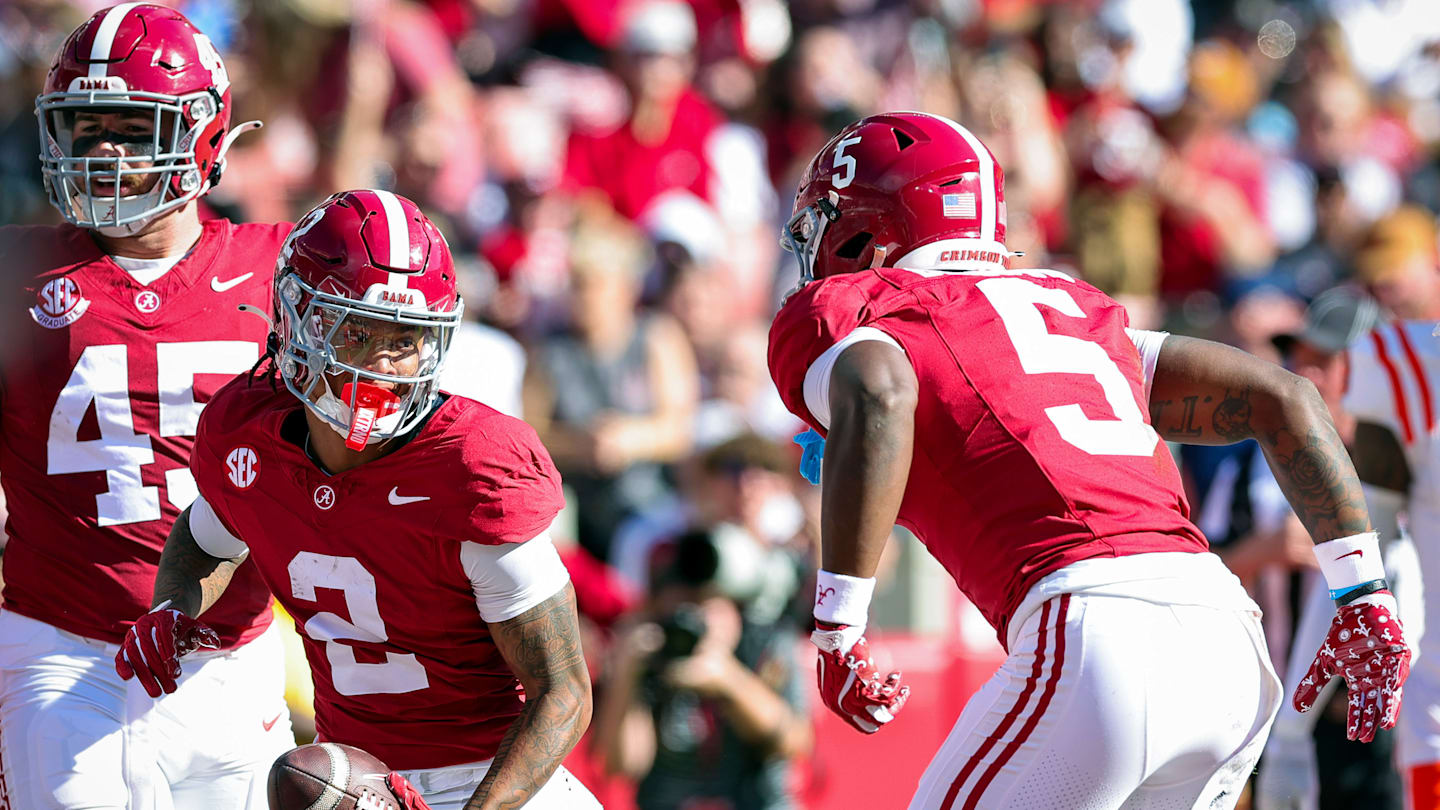College Football Legend Goes Off On NIL, Transfer Portal in Latest Rant

As NIL continues to dominate the college football landscape, it’s produced an NCAA model that may or may not be in the best interests of its players.
Former Alabama Crimson Tide head coach Nick Saban recently argued that the current system is unsustainable on Monday’s segment on ‘The Pat McAfee Show’ in Atlanta.
Saban sees the future of college sports as one that desperately needs regulation and a consistent model for handling name, image, and likeness.
“The people out there need to know this model is unsustainable,” Saban said. “It’s not good for players.”
He recognized their need to be compensated without removing some programs from competition with no checks and balances on the system.
“It has to be done in a way where you have some kind of competitive balance,” Saban said. “Every school must have the same thing. One school can’t spend $30 million for players while another school is spending $3 million.”
He finished his rant, leaving the regulation up to lawmakers to establish rhyme and reason in college athletics.
“I mean, people in Congress—I don’t care who has to get off their butt and do something,” Saban said.
Saban makes solid points with respect to balancing the school’s resources and retooling the model to better favor players. In fact, this practice was prevalent even before the NIL era, with deals made under the table. Some form of regulation that publicizes agreements and allows athletes to truly assess their market would be a better place to start.
However, his comments don’t exactly clarify the hardships he sees on behalf of athletes, though he has ranted about these issues before.
If they’re able to negotiate an NIL deal worth $30 million with another program that their school can’t match, how is that unfair to them? The intent of regulation must balance the interests of both the athletes and the NCAA without any unfair restrictions on trade.
The current model seems to considerably favor the top earners in college football with no NIL regulation as it stands. However, it doesn’t protect the athletes as they begin to enter the revenue-sharing era that’s seen schools introduce potentially problematic agreements.
An unnamed Big Ten institution shared a copy of their memorandum of understanding (MOU) on Monday, underscoring the future legal issues with revenue-sharing agreements and the rights of players.
While that structure appears to necessitate greater stability and consistency, it has so far introduced additional complications. Saban’s pleas don’t seem to solve much on behalf of the players outside of attempting to ensure the teams they’re on remain competitively viable with monetary resources.
Related
Does Michigan Football have the experience to make the College…
The Michigan Wolverines made it to the College Football Playoff for the first time in 2021 after beating Ohio State and winning the Big Ten Championship. Sin
Alabama football’s 2025 WR room is giving “Ryde Outs” vibes
Alabama football's WR room stagnated in the final years of the Nick Saban era in Tuscaloosa. The Crimson Tide went from a dominant run of recruiting and develop
Big 12 opener, historic Classic highlights HBCU football schedule
Courtesy of UAPB Athletics PINE BLUFF, AR.– The University of Arkansas at Pine Bluff Golden Lions football team has announced its 2025 HBCU football s
Top ten Ohio State football players entering 2025
There's great news, and just some OK news for the Ohio State football program. The great news is that the Buckeyes made good on their "national title or bust" s












